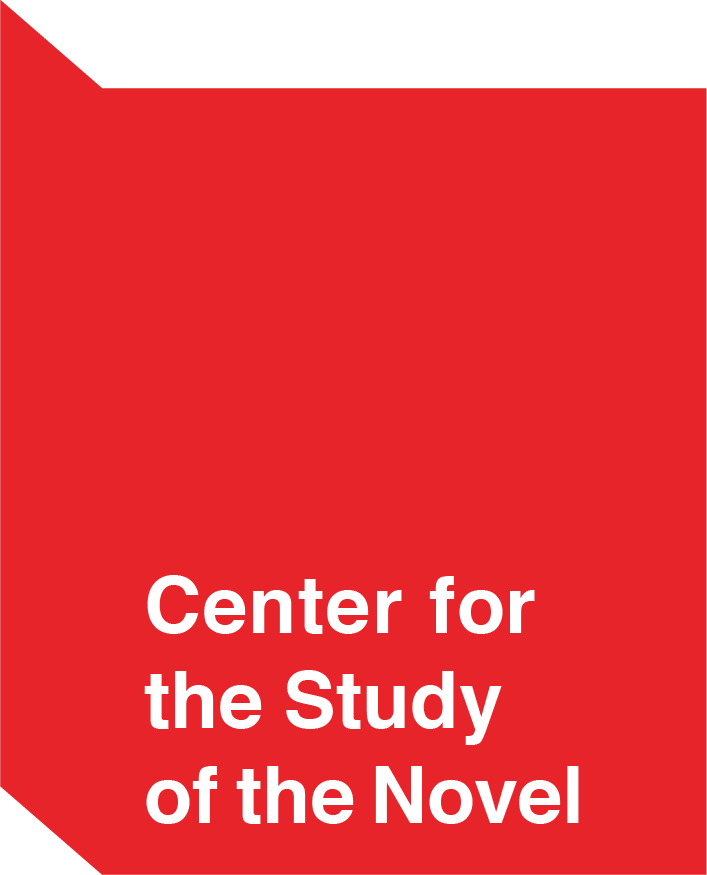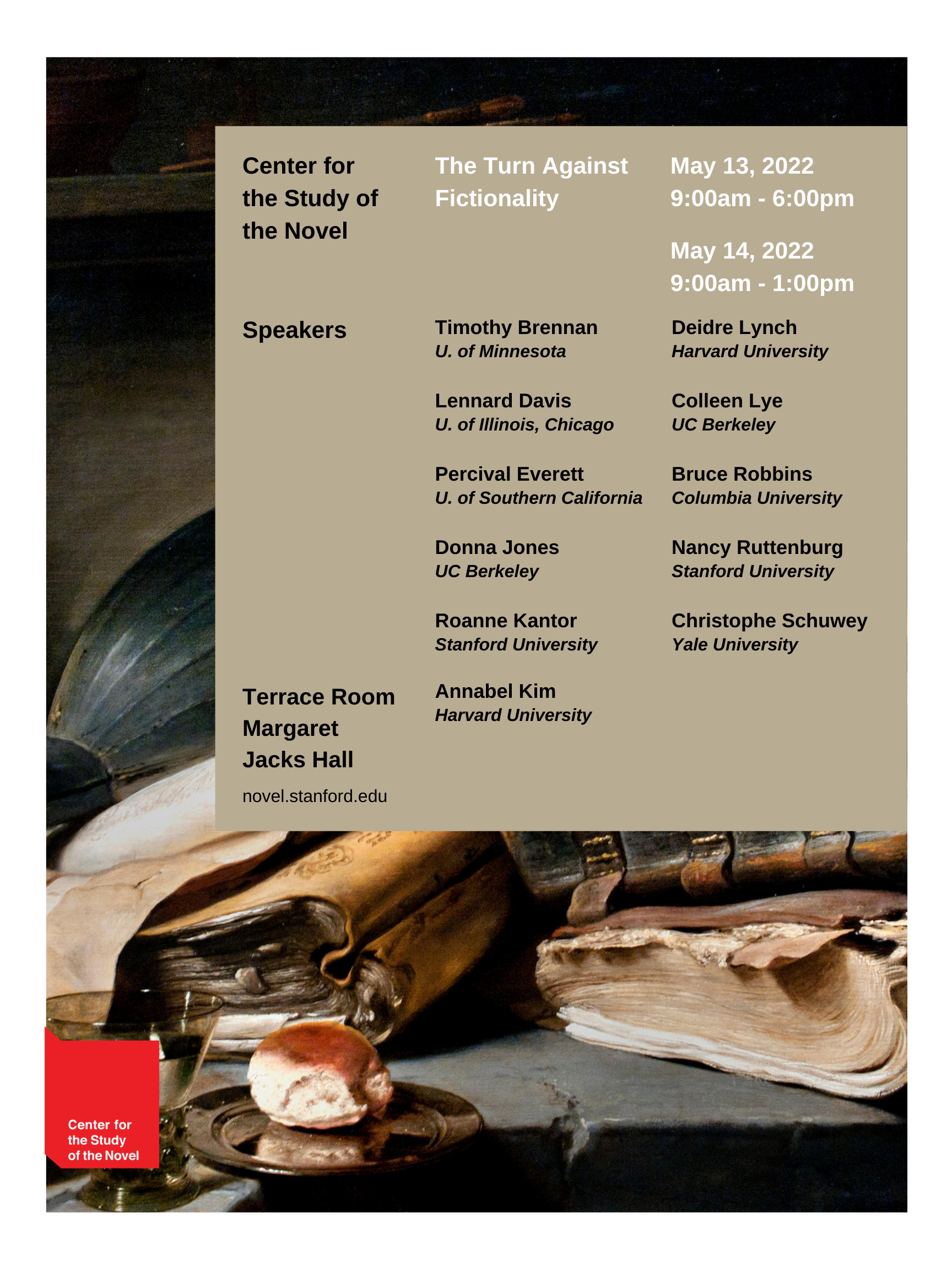Participants: Tim Brennan, Lennard Davis, Percival Everett, Donna Jones, Roanne Kantor, Annabel Kim, Deidre Lynch, Colleen Lye, Bruce Robbins, Nancy Ruttenburg, Christophe Schuwey
This conference takes up the vexed status of fiction which threads through American cultural discourse and education today, with an emphasis on novels and narrative. From the late twentieth century canon wars to the most contemporary-yet turn in our culture wars, suspicion or even fear of fiction draws together a range of hot-button issues. How has the discipline come to reckon with the real-life status of fictions we have authorized through research and pedagogy? And how must we reckon now with the widespread failure to authorize distinctions between fact and fiction: a political climate in which news is designated fake, but texts avowed as fiction bear culpability––and threaten harm––whether due to discomfiting content or as an extension of their authors’ real-life conduct? In asking why some audiences today are concerned that fictions can harm their readers, we also ask how this harm is effected, and what the social and political contexts are shaping that concern. How does this discourse relate to earlier conversations about the dangers of reading novels, which indeed seem to be a feature of critical commentary on the form going back to Don Quijote, and perhaps even before (Paolo and Francesca)? How might anxieties about fictionality’s danger relate to changes in the cultural centrality and generic cohesion of the novel, the displacement and dissolution of a canonical fictional form?


